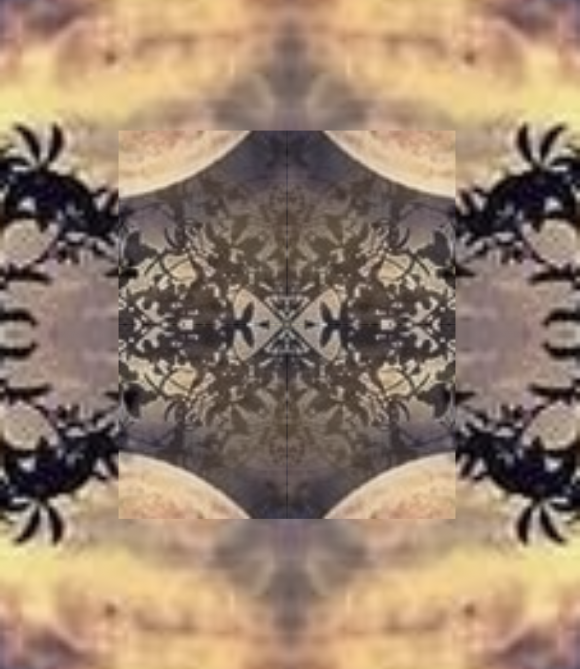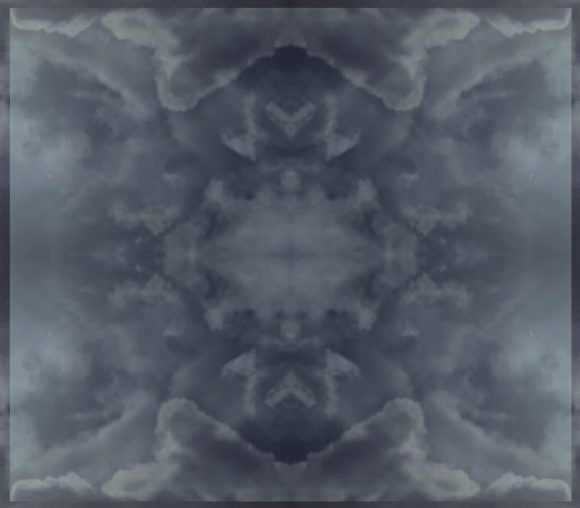[Note: This post has been superseded by an updated and more integrated article.]
‘Mirror’ is one of Durrell’s words; mirrors are one of his images: they appear throughout the Alexandria tetralogy, in various functions.

1. When the narrator’s relationship with Melissa starts, her previous lover is jealous (to the point of following him around with a pistol in his coat). The two men fall into a pattern of staring and ignoring each other when they meet. But then something happens, and — characteristically — it happens ‘in the mirror’.
Once, encountering him at a bar, I stood for nearly an hour beside him; we were on the point of talking to each other, yet somehow neither of us had the courage to begin it. […] As I was leaving I caught a glimpse of him in one of the long mirrors, his head bowed as he stared into the wineglass. Something about his attitude […] struck me, and I realized for the first time that he probably loved Melissa as much as I did.
Lawrence Durrell, The Alexandria Quartet [Justine], 25.
Durrell could have had his character looking at his rival directly, instead of in the long mirror, and he would have seen the same. Why does he have him seeing it in the mirror?
For one thing, note that the narrator realizes here something, not just about his rival, but also about himself. To compare someone else’s feelings with your own, it is not just enough to empathically realize what their feelings are — you have to be aware of your own feelings as well. (It is true, of course, that the empathy only works because you have these similar feelings in the first place. But that does not invalidate the point. If you want to compare them, you have to be aware of both sides.) The mirror appears in the text to subtly symbolize this requirement of self-awareness as a component of other-awareness. (We have seen it in this function before.)
But the episode is also the first instance of a frequent pattern of things happening ‘in the mirror’. Let’s have a look at a few others.
2. After a lecture, Justine follows the narrator to a grocer’s shop, where he has followed a sudden craving for Italian food, and now sits and eats from a tin of olives. She talks to him, and he — does not look at her directly, but rather sees her in the mirror:
Unable to disentangle myself from Italy I looked up boorishly and saw her leaning down at me from the mirrors on three sides of the room (32).
The slightly unrealistic element in that scene — if someone where to talk to you in public, would you look at them indirectly, in a mirror, instead of looking them in the face? — is explained here by the fact that the narrator was just immersed in his “tasting Italy” (via the Italian olives), and had been abruptly pulled out of it. But if there is an adjustment, i.e. if the narrator then turns directly towards Justine for the rest of the conversation, the novel does not mention it. The important, mentionable detail for the novel is that the first glance happens ‘in the mirror’.
3. And this pattern is not limited to romantic encounters and related topics (such as jealous feelings). It extends into everyday life as well.
Mnemijian’s Babylonian barber’s shop was on the corner of Fuad I and Nebi Daniel and here every morning Pombal lay down beside me in the mirrors. (35)
The morning routine of getting a shave in the shop around the corner is the setting for a scene, early in the novel, which has the function to characterize the barber Mnemijian and the narrator’s flat-mate Georges Pombal (plus a few others). And nothing is more natural, for a barber’s shop, than lots of mirrors. But the choice of phrase is still remarkable: instead of simply mentioning that he went to get a shave together with Pombal, and then describing how they both lay down in the barber’s chairs, seeing their reflections in the mirror, he says that Pombal lay down in the mirrors.
The stylistic pattern does return, not just generally, but also specifically in Mnemijian’s barber shop, when Scobie visits it in Balthazar, and the narrator notices that he “did not dare even to wink at me in the mirror” (222, my emphasis).
4. Communication between the characters frequently uses mirrors as medium. The most ordinary case, of course, is self-talk.
[Nessim] noticed that he involuntarily repeated phrases aloud to which his conscious mind refused to listen. ‘Good’ she heard him tell one of his mirrors, ‘so you are falling into a neurasthenia!’ (130)
‘I want to know what it really means’ I told myself in a mirror whose cracks had been pasted over with the trimmings of postage stamps. I meant of course the whole portentous scrimmage of sex itself […] (151)
Then, he could make her laugh — quite the most dangerous thing to do to a woman for they prize laughter most after passion. Fatal! No, he was not wrong when he told himself in the mirror: “Ludwig, thou art an imbecile.” (290, see also 288)
In none of these examples, the self-talk is of the half-mindless, ordinary kind: it rather has a certain theatralic quality. The theatrics are not meant, however, for other people; for the speaker either is or thinks himself alone. So the self-talk is of the kind which, as Erving Goffman observes, involves a kind of impersonation: “after all, we can best compliment or upbraid ourselves in the name of someone other than the self to whom the comments are directed.” To that end, we are “stage-acting a version of the delivery […] we briefly split ourselves into two, projecting the character who talks and the character to whom such words could be appropriately directed.” (Forms of Talk, 82, 83) Mirrors are an especially helpful instrument to do precisely that.
Still, this can only be part of the story. The author has other means than portraying self-talk for giving us peaks into the minds of his characters. One such means is indirect speech, as we can see in the third example: Pursewarden’s realization that he was making Justine laugh, that this would make him attractive to her and thus might have furthered the possibility of an affair, is characterized as ‘dangerous’, not by the narrator, but as an explication of Pursewarden’s thought. The thinking is not presented directly (“Pursewarden thought it was dangerous…”) but indirectly; and if this works, then why is there suddenly need to present the character as saying his next evaluation (“thou art an imbecile”) out loud, rather than presenting it as a thought as well? Without that, the author could present the scene without needing a mirror as a means to stage it (along with the theatralic language he puts into Pursewarden’s mouth).
And again, I think Durrell must have thought the other way round: the scene is explicit self-talk behavior happening in the external world (not just in silent thinking) because that allows Durrell to insert a mirror. The mirror introduces an element of reflection, self-awareness: the character self-consciously talks to himself. This self-awareness accompanies the thought that is expressed in the self-talk, and it is symbolized by the mirror. In this way, the mirror is part of the scene as a stylistic element just as the theatic language the characters use.
5. Not just self-talk, but also interpersonal interaction happens via mirrors throughout the Alexandria Quartet — both of the verbal and non-verbal kinds.
[…] while she was dressing for dinner […] Nessim came into her room and addressed her reflection in the spade-shaped mirror: ‘Justine […]’ he said firmly […] (142)
From time to time in the driving mirror I catch Nessim’s eye and he smiles. (170)
This once more adds an element of self-consciousness to the acts of communication (represented in the story world by having it happen ‘in the mirror’). It removes and separates the two parties of the interaction from each other.
6. Such distancing is not just, in the settings of the novel, effected by inserting mirrors. It is a habitual part of life for many of the characters — and part of their philosophy, too. Thus in Justine’s melancholy world view, separation and loneliness are the default situation. There is no real connection or exchange between two people, even lovers — just a kind of coincidence of feeling, temporarily.
‘Idle’ she writes [in her diary] ‘to imagine falling in love as a correspondence of minds, of thoughts; it is a simultaneous firing of two spirits engaged in the autonomous act of growing up. […] the illusion that she communicates with her fellow [….] is false. The loved object is simply one that has shared an experience at the same moment of time, narcissistically; and the desire to be near the beloved object is at first not due to the idea of possessing it, but simply to let the two experiences to compare themselves, like reflections in different mirrors. […] from here love degenerates into habit, possession, and back to loneliness.’ (46-47)
Likewise Melissa would engage in what the narrator describes as “fragile mirror-worship”:
[She might] sit naked at the dressing-table to light a cigarette — looking so young and pretty, with her slender arm raised to show the cheap bracelet I had given her. (‘Yes, I am looking at myself, but it helps me to think about you.’) (50)
Infatuation and tenderness, just as empathy (§1 above) and communication (§5 above), frequently happen ‘in the mirror’, that is, in a subtly distanced and separated manner.
7. Perhaps it is just a thing with Alexandria. Compare this passage:
You do not know what a thing it is when a lover is looked at. It has a greater pleasure than the Business. For the eyes receive each others’ reflections and impress from there little images as in mirrors. Such an emanation of beauty, flowing down through them into the soul, is a kind of copulation at a distance.
Achilles Tatius, Leukippe & Cleitophon
[Quoted in Goldhill, “The Erotic Experience of Looking”, 378.]
This is from a novel, set in Alexandria and written probably in the late 2nd century CE, by Achilles Tatius — and notable for an “extended portayal of the effect of seeing Alexandria for the first time (ibd., 377). I have no earthly idea whether Durrell knew about or had even read this book, but it certainly seems congenial with many of his themes and obsessions in the tetralogy.
In the many colorful passages that relate the unique flair of the city, mirrors are never absent (viz. 625, 658, 660). And the indirect and distanced nature of communication and love-making is captured in one of its most typical features:
[…] cafés sweet with trilling of singing birds whose cages were full of mirrors to give them the illusion of company. The love-songs of birds to companions they imagined — which were only reflections of themselves! How heartbreakingly they sang, these illustrations of human love! (624)



